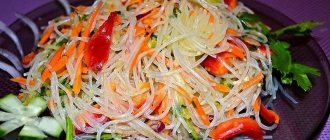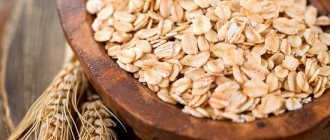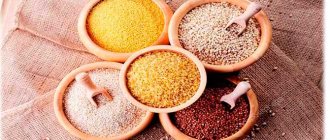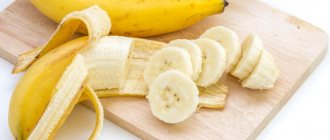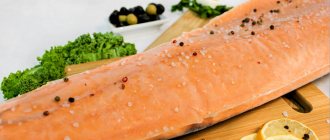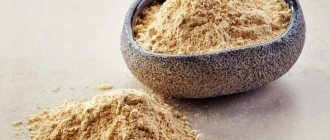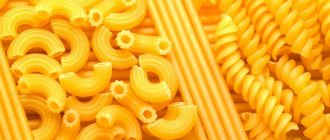Pineapple is one of the most popular and healthy tropical fruits on the planet. It is eaten fresh, dried, freshly squeezed, added to salads, pickled and even fried. The benefits of pineapple for the body are invaluable. This fruit is a source of unique substances that trigger the process of weight loss and give people a boost of energy.
The healing properties of pineapple are known; they are a powerful aphrodisiac. Enough fruit appears on the table next to candles and champagne, and a special aura is instantly created, attracting people to each other. What are the benefits of fruits for men and women? When fruits help you lose weight, we’ll tell you in our material.
What is pineapple
The tropical plant pineapple is still a mystery to biologists. The exotic fruit causes debate on the topic: is pineapple a berry or a fruit? What is reliably known is that pineapple is a herbaceous plant with elastic stems, surrounded by a dense rosette of fleshy leaves.
The inflorescence is located in the very center, located in the heart of the plant. Having been fertilized with pollen, it becomes a fruit, and then a full-fledged fragrant fruit, as we are used to seeing it on the table. It looks like a large cone with a “plumage” of dense, slightly prickly leaves at the ends with a special aroma, fresh, slightly sharp taste.
Where does pineapple come from? It is believed that the plant was introduced to the world by Christopher Columbus with the discovery of America at the end of the 15th century. First, its plantations were found in Brazil, where wild pineapple thickets are still found today. A little later they were noticed on the island of Guadeloupe in Central America, and a couple of centuries later they were discovered in the countries of Africa, Asia, and Australia.
Since pineapple is well stored and does not spoil during transportation, it quickly conquered the planet. The fruit also turned out to be easy to grow—pineapple greenhouses were as common in past centuries as tomato greenhouses are today. The fragrant fruit has been loved for a long time. But only in our times have scientists been able to decipher the composition of the fruit and reveal the secret of its beneficial properties.
Chemical composition of pineapple vitamins and minerals
Pineapple consists of 90% water, the rest being acids: citric, tartaric, malic acids, as well as monosaccharides. If we talk about the balance of KBZHU (fats, proteins and carbohydrates), then most of them are carbohydrates - they are contained in fruits 11.8%. There are practically no proteins - 0.3%, and even less fat - only 0.1%.
In this case, carbohydrates do not cause harm to the body - they belong to the complex group. They take a long time to digest and are the main supplier of energy for the body, giving people strength and vigor. The fruit is also called a storehouse of valuable microelements: vitamins in pineapple, just like amino acids and minerals, are present in the fruit in great abundance.
- vitamins A, B, E, PP, C, K;
- zinc, selenium, manganese, boron, iodine, calcium;
- iron, magnesium, potassium, phosphorus, copper;
- fiber, beta-carotene.
Essential oils give the fruits a special aroma, but the most famous is the complex of proteolytics that destroy enzyme proteins, which we often call bromelain.
Bromelain is famous for its ability to improve the absorption of proteins and break down fat tissue, burning excess calories.
Pineapple beneficial properties
Pineapple is widely used in cooking, cosmetology, and the textile industry - in the Philippines, pineapple plantations are bred to produce a special fiber. Fresh pineapple is healthy - it saturates perfectly, and at the same time it perfectly cleanses the gastrointestinal tract - the fibers of the fruit are quite coarse, they act on the intestines like a brush, freeing them from toxins. A few slices of the fruit a day reduce blood viscosity, preventing the formation of blood clots, and people who are losing weight only need to eat it for dessert to activate the fat burning process.
Pineapple is also used:
- To stimulate enzymes that help absorb nutrients from food, increasing appetite. It is useful for little ones to drink a glass of fresh pineapple or a small piece of fruit during meals - their appetite will immediately increase;
- To eliminate heaviness in the stomach. At hearty feasts, where there is a lot of meat, fatty foods, salads with mayonnaise dressings, it would not be a bad idea to eat a little fruit. The feeling of heaviness will go away, food will be digested much faster;
- As a prevention of nausea during pressure changes and motion sickness. For example, it is important to drink pineapple juice or candy with fruit syrup during air flights or boat trips. It is enough to taste the healthy fruit, and the “sea sickness” will recede and will not remind you of itself throughout the entire trip;
- For coughs and colds. If we actively drink tea with raspberries during a cold, then in the tropics it is pineapple that is used for these purposes - the fruit thins phlegm and the cough goes away, vitamin C strengthens the immune system, which quickly puts the patient on his feet;
- If you are prone to edema, thrombosis, the beneficial substances of the fruit thin the blood, remove excess fluid from the tissues and the person looks slimmer.
Tropical fruits are of particular value for women and men - the beneficial properties of the fruit work differently depending on the gender of the person.
How many calories are there in canned pineapple?
Canned pineapples are more often found on the shelves of our stores. This is due to their long shelf life, which makes pineapples available at any time of the year.
The calorie content of pineapples in a jar is slightly higher than that of fresh fruit. This is explained by the addition of sugar syrup during preservation.
On average, 100 grams of canned pineapples in a jar contains about 60 kcal.
Manufacturers of canned food indicate the calorie content and nutritional value of products on the packaging. These values may differ between manufacturers, as different formulations may be used.
The nutritional value of 100 grams of a product such as canned pineapples will be as follows:
- proteins 0.52 grams;
- fats 0.10 grams;
- carbohydrates 14.25 grams.
Canned pineapples lose most of their nutrients during processing, but they still perfectly satisfy your hunger without adding extra pounds.
Just a few years ago, for the residents of our country, pineapple was simply a tropical fruit that was consumed fresh or canned as a dessert.
Today, almost every housewife has in her arsenal several recipes for hot dishes, salads and desserts, the ingredients of which include pineapples.
Pineapple fruits go well with meat, both pork and poultry. Salads can be fruit, which are served for dessert, or with various vegetables, fish and meat.
Benefits of pineapple for women's health
Women value exotic for its ability to speed up metabolic processes and actively burn extra centimeters on the waist. The benefits of pineapple for women do not end there. Pineapple fruits:
- will be an excellent component of any detox diet as a powerful antioxidant and product that dulls the feeling of hunger;
- will balance the emotional background due to the fact that microelements of fruits directly affect the production of the joy hormone - serotonin;
- help to survive hormonal storms - PMS, pregnancy, menopause, because the essential oils of the fruit smell wonderful, and the pineapple fruits themselves are sweet;
- will serve as a prevention of varicose veins;
- will improve the reproductive system - it has been proven that women who regularly consume pineapples become pregnant more easily and bear a child more calmly.
Obstetricians and gynecologists believe that the beneficial properties of pineapple for women are obvious during pregnancy. They recommend eating them occasionally in the last trimester. There is less swelling, and the risk of gestosis (increased blood pressure in later stages) is reduced.
As for the sensational pineapple diets, it is important to be vigilant. Firstly, an excess of fruit in the diet can lead to disruptions in the gastrointestinal tract: vitamin C and fruit juices burn the delicate gastric mucosa. Secondly, pineapple helps you lose weight only in its raw form - when dried, preserved, or any strong heat treatment, the fruits irrevocably lose their magical qualities. The combination of pineapple with chicken, beef, chicken and quail eggs, and seafood is optimal: protein products reduce the aggressiveness of fruit acids.
Pineapple oil is very useful for women. Of course, it is not possible to squeeze the oil directly from the fruits - there is too little of it in the fruits themselves.
Pineapples quickly transfer their benefits to any vegetable oils. It is enough to pour pieces of fruit with olive or sunflower oil, leave for several days, strain, and then use for external use or drink one or two teaspoons a day. The condition of the skin, nails, and hair will improve, they will become strong and shiny.
Can it be used for weight loss?
After nutritionists started talking about the benefits of the fruit, the whole world wondered whether it is possible to lose weight from pineapple. The product contains bromelain, which has the sonorous name “slimness enzyme”. Bromelain promotes the breakdown of proteins, enhances the work of gastric juice, which promotes rapid absorption of food.
Eating pineapple for weight loss is also effective due to the fruit’s content of manganese, zinc, dietary fiber, organic acids, vitamins and minerals. The piece contains the optimal amount of microelements that are necessary to maintain the proper functioning of the body.
Does it allow you to lose weight: review of reviews
Reviews about the best time to eat pineapple for weight loss are divided. Some people think that adding a few slices of fruit to breakfast porridge is effective. According to the girls, you feel full faster this way and don’t feel like eating for a long time. Others, on the contrary, say that given how many calories there are in pineapple, you can safely eat it in the evening or instead of a snack between main meals.
Some girls did not think at all about whether it was possible to eat pineapple in the evening while losing weight, since this was not the ultimate goal. The sweet fruit was consumed throughout the day and instead of dessert. The result is a decrease in the number on the scales.
Pineapple diet for weight loss is gaining popularity
Is it possible to eat at night?
When losing weight, you can eat pineapple at night, but it is recommended to do this no later than 1-2 hours before going to bed. Considering that the product promotes the breakdown of proteins, it would be absolutely useful to eat a piece after a hearty dinner. Read about whether you can eat bananas at night here.
When is the best time to use?
Pineapple promotes weight loss if consumed in optimal quantities. For example, in the morning in addition to breakfast and throughout the day as a snack. There are no exact recommendations as to when exactly it is best to eat fruit. There is no reason to recommend eating pineapple for the purpose of losing weight at night, as well as the opposite.
Pineapple benefits for men
Men should eat pineapples after a hard day of work: the fruits act as a natural energy drink and quickly restore strength. Trainers and nutritionists know the benefits of pineapples for athletes. They recommend including the fruit in your diet to balance out your muscle building diet.
The fruits are extremely useful for preserving male potency, prostate health, and semen renewal.
In Asian countries, the aphrodisiac has been elevated to a cult; the fruit is offered to newlyweds as a wish for speedy procreation.
Before hunting or hiking, which require great strength and endurance, men must rub themselves with pineapple oil from head to toe. True, only fresh and homemade - ready-made fruit-based cosmetic products will not work.
How to calculate the calorie content of pineapple dishes
The uniqueness of this product is that it can equally be used as a stand-alone dessert, or as a component or addition to many recipes. Pineapple juice is added to porridges and soups, and the pulp goes well with legumes, fish, meat, poultry, and seafood. The calorie content of all these dishes varies, since it depends on their composition.
Pineapple juice
The tart drink is tasty both on its own and in combination with other juices. Its calorie content is 52 kcal per 100 g, so it is a good candidate for inclusion in the diet menu.
Pineapple juice contains 52 kcal per 100 g.
Pineapple jam
The level of carbohydrates in such a product tends to rise. This is due to the method of preparing the jam and the addition of additional ingredients, in particular sugar. Calorie content also increases to 246-250 kcal per 100 g of jam.
Bun with pineapple jam
The energy value of the dish exceeds 365 kcal. In this snack option, the fats and carbohydrates contained in the bun are generously added to the calorie content of the jam.
Salad with pineapple and chicken
Light, easy-to-prepare salads are a good help for those who watch their diet. Chicken and pineapple salad is an excellent source of nutrients with an optimal ratio of KBJU.
We recommend that you familiarize yourself with BZHU mango
The ingredients and nutritional value of prepared meals vary across many recipes. For example, the calorie content of a salad containing chicken breast, pineapple pieces, boiled egg, yogurt dressing is within 150 kcal per 100 g.
Alcohol tincture
It is believed that alcohol-based pineapple tincture promotes weight loss and tones the body when consumed in moderation and in doses.
This theory does not find scientific confirmation, but it is known that bromelain enhances its beneficial effects in this form of use.
The calorie content of pineapple tincture is 117.9 kcal per 100 ml.
Fruit salads
Fruit-based salads are healthy, appetizing and easy to prepare. The calorie content of this type of dish depends on what is included in its composition. For example, bananas will add 91 kcal to a salad.
And when including raisins, you need to take into account that they contain 271 kcal. The energy value of a salad made from equal parts of pineapple, strawberries, kiwi, melon, grapes and yogurt will be 47 kcal per 100 g.
It is useful to add pineapple to fruit salads.
Contraindications and harms of pineapple
Like any exotic, tropical fruit can be hostile to the body of residents of Europe and Russia. Allergies to pineapple are common in children, which is why pediatricians do not recommend that children eat pineapple or drink freshly squeezed fruit juice at an early age.
Don’t forget about aggressive fruit acids and excess vitamin C: they corrode the stomach and sometimes leave mini-burns on the mucous tissues of the larynx and mini-burns in the mouth. It’s easy to protect yourself from this if you dilute the fresh juice with clean, cool water and don’t get carried away with fruit, limiting the dose to a couple of slices per day. Contraindications to consuming pineapple are:
- gastritis, colitis, ulcers;
- sensitivity of tooth enamel;
- diabetes mellitus before consulting a doctor;
- tendency to allergic reactions;
- skin diseases of unknown nature;
- children under 6 years of age.
Unripe fruits are especially dangerous. Such fruits are caustic, they burn the lips, irritate the walls of the mucous membrane, and act on the intestines as a strong laxative. But all these troubles will not threaten if you feast on juicy, ripe pineapples little by little. The conclusion is simple: treat yourself to fruit in moderation, then you will be slim and vigorous.
Calorie content of dried fruit
Eating dried fruits instead of unhealthy snacks can be a pitfall for many people when trying to lose weight. These products are supposed to be healthy alternatives to chips, but in reality they are not. Dried fruit contains many more calories and sugar than fresh fruit, and therefore can be just as unhealthy as many standard snacks such as chips, store-bought popcorn, candy, and others.
We recommend that you read Beans for children
Dried pineapple has a calorie content per 100 g of product - 245 kcal.
100 g of this fruit contains:
- fats - 0.61 g (of which 0.046 g are unsaturated);
- carbohydrates - 64.44 g;
- dietary fiber - 17.2 g;
- sugar - 47.24 g;
- proteins - 2.76 g.
The same amount of dried pineapple contains 62% of the recommended daily value of vitamin C.
